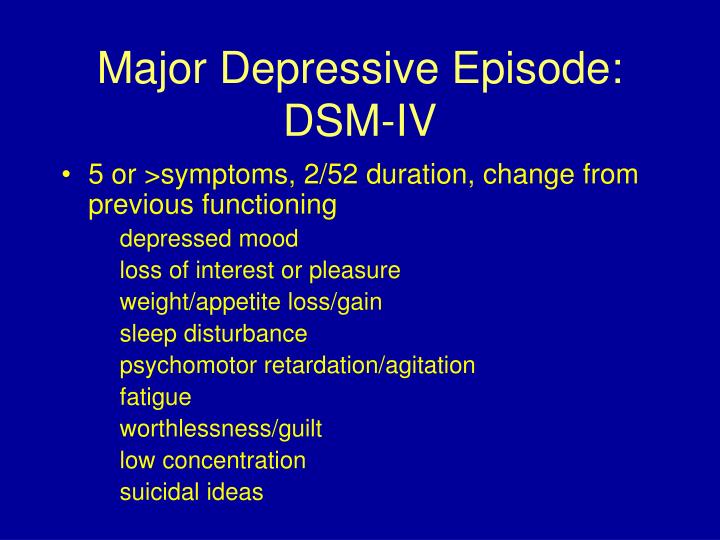
It’s important to note that with major depressive disorder, the symptoms are far beyond feeling down in the dumps. A prospective investigation of the natural history of the long-term weekly symptomatic status of bipolar II disorder. What Are Depressive Episodes As their name suggests, depressive episodes are phases throughout your life where you’ll experience significant bouts of depression. Judd LL, Akiskal HS, Schettler PJ, et al. Three times more days depressed than manic or hypomanic in both bipolar I and bipolar II disorder. Depression and anxiety in systemic lupus erythematosus: The crosstalk between immunological, clinical, and psychosocial factors. doi:10.1151/spp053113įigueiredo-Braga M, Cornaby C, Cortez A, et al. Mood disorders and substance use disorder: a complex comorbidity. Exercising doesn’t have to mean sprinting for miles it. This can be of assistance for people who are experiencing depressive episodes or are starting to feel one coming on. When we exercise, our bodies release endorphins that can actually help us to better manage our moods.

Insomnia associated with depressive disorder: primary, secondary, or mixed? Indian J Psychol Med. Exercising is a great way to promote functional mood management. Core symptoms of major depressive disorder: relevance to diagnosis and treatment. Depressive disorder, frequently referred to simply as depression, is more than just feeling sad or going through a rough patch.
#Depressive episode manual#
Diagnostic and Statistical Manual of Mental Disorders (DSM-5). These are depressive episodes, and they can indicate a larger. Recurring thoughts of death or of being dead thinking about suicide without making a plan ( suicidal ideation) a suicide attempt or the making of plans to take your own lifeĪmerican Psychiatric Association. But sometimes, these sad periods are much more severe, and they dont seem to go away easily.Trouble concentrating and/or making decisions nearly every day for example, an employee told to make a plan for getting a bunch of work done might be unable to evaluate the situation properly or make any decisions about it.Feelings of worthlessness and/or guilt that are excessive or not related to anything a person who isn't depressed would feel guilty about-again, this must occur almost every day during a two-week period.Fatigue or loss of energy almost every day this might take the form of being too tired to do normal daily activities like housework, or not having the energy to go to work-and in some cases, it may be quite severe and even disabling.Unusual agitation or restlessness or being sluggish and hesitant and/or confused in speech nearly every day ( psychomotor agitation or psychomotor retardation).Insomnia or hypersomnia almost every day (difficulty sleeping, or sleeping far too much).

Use the Patient Health Questionnaire-9 (PHQ-9) to aid in diagnosing and monitoring patients.


 0 kommentar(er)
0 kommentar(er)
